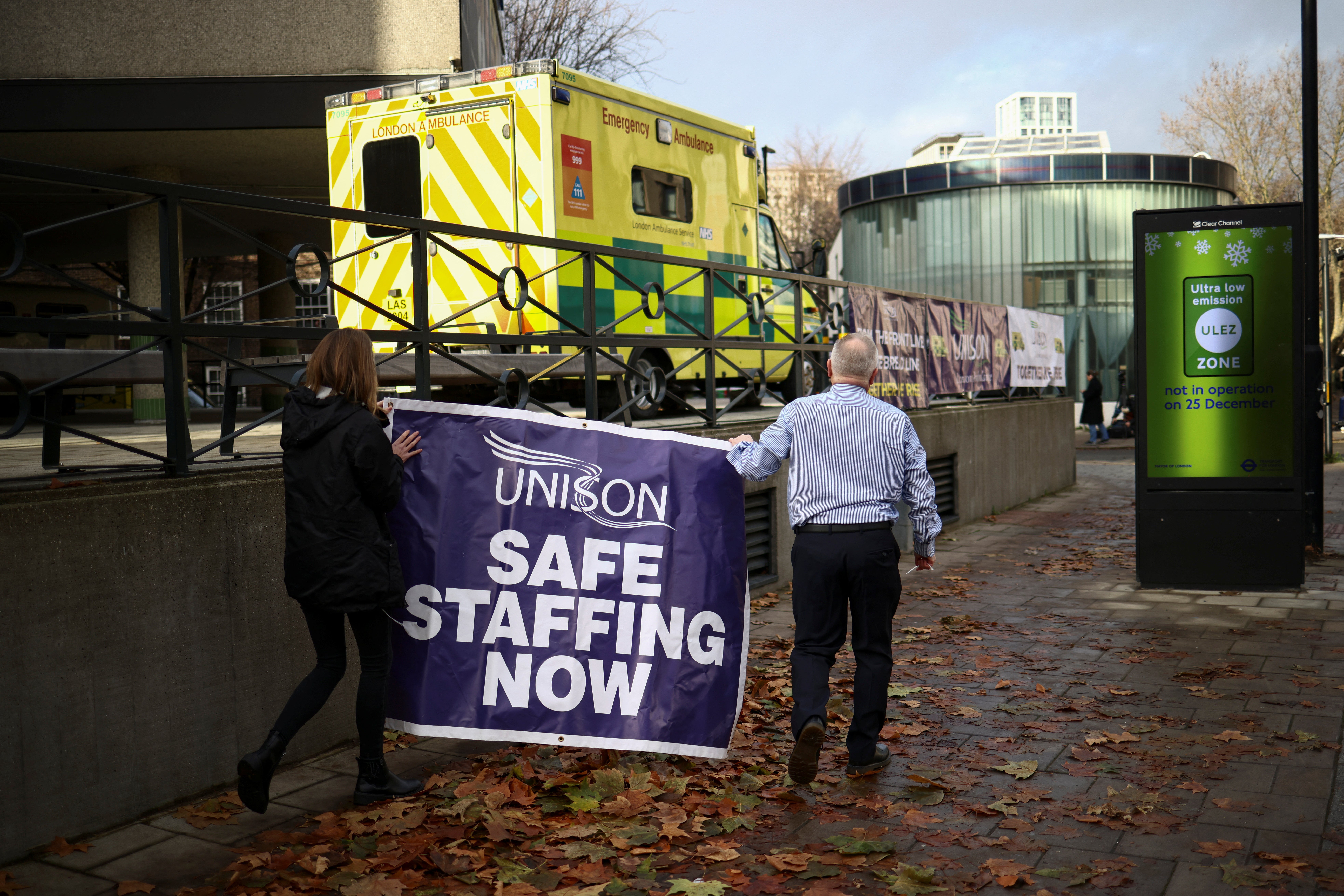Jeremy Hunt talks of ‘tough’ decisions as borrowing soars – but he can afford to settle strikes
Debt hit £22bn in November but fell as a proportion of GDP when compared to this time last year – and the figure could yet be revised downwards, writes James Moore


Oh dear. On the day that ambulance workers and paramedics went on strike, the latest public sector borrowing figures revealed a record £22bn hole in the public finances.
Chancellor Jeremy Hunt duly put on his responsible headteacher duds and warned that he would have to make some “tough decisions to put our public finances back on a sustainable footing”.
We’ve already heard him talking about “difficult decisions” and even “very difficult decisions”. There’s probably been a “hard decisions” in one of his missives, too. What’s next? Challenging? Regrettable?
There is probably somebody in the Treasury press office whose job it is to use a thesaurus to find new ways for the chancellor to say the same thing.
The obvious implication of his latest statement is that ministers won’t budge on pay awards for the public sector, which will make the various disputes involving its workers all the more intractable.
That £22bn compares with £13.9bn at this time last year, £13.5bn in October, and the analysts’ consensus forecast of £13bn.
The November number was pushed higher by inflation, which makes index-linked government debt much pricier to service; by rising interest rates (ditto, in respect of other types of debt); and by the government’s energy price guarantee, among other things.
But is the result as unlucky as it looks?
For a start, these numbers tend to be highly volatile. They’re a nightmare for forecasters, even when the economic waters are calmer. The contribution of the energy price guarantee to the borrowing Hunt will need to engage in is next to impossible to predict. To do so requires economists to make a stab at where energy prices are likely to go. Good luck with that.
The Office for National Statistics has made it clear that the number is just an initial estimate. The contribution of the guarantee, which is keeping all our bills down, has meanwhile been categorised as “an initial indicative estimate”.
The figure is thus almost certain to be revised. True, it could be revised upwards as well as down.
Another good point came courtesy of Martin Beck, chief economic adviser to EY’s respected ITEM Club of economic forecasters. He said that, even at this level, borrowing appears on track to undershoot the Office for Budget Responsibility’s £177bn full-year forecast.
The overall stock of public sector debt, £2,477.5bn, now amounts to 98.7 per cent of GDP. This puts it at a level not seen since the early 1960s. But that is actually 0.3 percentage points lower than debt to GDP at the end of November 2021.
None of this changes the fact that the £22bn figure is a rotten result. But we should not look at it in isolation.
The government is not just borrowing billions to support householders with their energy bills. It is supporting businesses too, both large and small. Its scheme sees their suppliers applying a discount to their bills at source.
Some of these businesses – those with the flexibility and willingness to do so – have taken a very different approach from that of the government when it comes to labour relations. They have been offering chunky pay rises, sometimes more than just once a year, plus additional cost-of-living top-ups to their lower-paid staff.
Three, the mobile phone company, announced just such a move as the borrowing figures came out, granting a second annual pay rise to 2,500 workers in its 297 stores of between 8.1 and 10.1 per cent from 1 January.
All staff earning less than £30,000 will also receive a £500 one-off cost-of-living payment. The hourly rate for its workers has risen by 24 per cent since the end of 2021.
You can file this under “enlightened self-interest”. At a time when employers are struggling to find the staff they need, this will make Three a more desirable place to work than some of the alternative options, on the High Street or elsewhere.
The company will incur a cost, but that will be made easier to bear by the energy support scheme, as it reduces the impact of this winter’s ruinous energy bills.
It does raise a question for the chancellor: at a time of wage pressure, why is he helping private sector employers with their costs when he won’t look after his own?
That’s before we even consider the question of the billions the government has poured down the toilet by way of Brexit, dreadful procurement decisions made during the pandemic, and the appointment of Liz Truss as prime minister. There would be plenty of money in the kitty to fund fair pay rises if all those billions were still in the bank.






Join our commenting forum
Join thought-provoking conversations, follow other Independent readers and see their replies
Comments